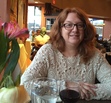Searching for Stories
My mother tells how Heinz Lichtenstern, her father, escaped a transport to Auschwitz in 1944. Notified that he, along with all men aged 16 to 55 then in Theresienstadt, would be leaving soon, he had said his tearful goodbyes to his family. At the transport, before boarding, Heinz once again showed the family’s Paraguayan passport. This time it worked and he was excused. My grandmother kept the small piece of pink onion skin on which were neatly typed his name, camp number, and the word “ausgeschieden,” or “withdrawn.” As the families of most of the men that were transported were sent on subsequent transports to Auschwitz, use of the passport saved not only Heinz, but in all likelihood his wife and two children. I exist because this passport existed.
[image error][image error]
[image error]
It was only a few years ago that the origin of that passport, and many others like it, was discovered. It was produced by the Polish legation in Bern, Switzerland, led by Polish Envoy Aleksander Ładoś and his colleagues, counselor Stefan Ryniewicz, Polish Consul Konstanty Rokicki, and the Jewish attaché Juliusz Kühl. Current estimates are that 8 to 10 thousand Jews were named on the passports they produced between 1940 and 1943 (most passports, like my grandfather’s, named an entire family on the one document). These diplomats worked in concert with two Jews, Chaim Yisroel Eiss of Agudat Israel, and Abraham Silberschein of RELICO. Even when their scheme came to the attention of the Swiss authorities they persisted, at great risk to themselves.
The current Polish Embassy in Switzerland has meticulously put together a list of several hundred individuals thought to have obtained these passports and to have survived. Sadly, not all passports reached their intended holders. And tragically, not all of those who did receive the passports survived. Most, but not all, of the passports, including the one for my mother’s family, bear Rokicki’s unmistakable handwriting.
Efforts are now underway to see the three non-Jewish members of the Polish Legation—Ładoś, Ryniewicz, and Rokicki—jointly recognized by Yad Vashem as Righteous Among the Nations. As of this writing only Rokicki has been so honored.
I am attempting to support the nominations of Ładoś and
Ryniewicz by soliciting additional testimony from survivors. As I do not feel
it is reasonable to cold call survivors, I have instead been calling relatives,
mostly their adult children (2Gs). I am truly honored that they have been
willing to share their family stories with me.
My husband used the term ‘Holocaust fatigue’ the other day. He meant that it’s normal for people to want to have a break from remembering. It is a heavy burden to carry the Holocaust in your thoughts at all times. We don’t need to always have the Holocaust in mind as we go through our individual daily lives. The important thing is that society remember. The Holocaust must stay in our collective conscious. We must make sure our young are taught about the Holocaust, ideally through multiple exposures across their schooling. We must allow those who wish to speak up, to have a voice. We must drown out the deniers with a chorus of individual stories.
There are events of such overbearing magnitude that one ought not to remember them all the time, but one must not forget them either. Such an event is the Holocaust.
The Rabbi of Bluzhov, Rabbi Israel Spira
in Hasidic Tales of the Holocaust by Yaffa Eliach, 1982
It has been interesting calling people so far. The passport web has many threads and they connect so frequently that my mind tends to spin. Some children have not known that their parents were on the passport list while others were aware of the family’s passport but had not yet heard the story of the Polish Legation. One person I called ended up being a relative, a second cousin of my sister-in-law. Another person had a relative that worked in Holland in the scrap metal trade. Those of you who have read Tutti’s Promise will recall that Heinz was a scrap metal commodities dealer in the Netherlands.
One amazing coincidence came when I contacted Mordecai Paldiel, former Chair of the Righteous Among the Nations Department at Yad Vashem. I had been given his contact information by a curator at the United States Holocaust Memorial Museum who felt Mordecai might be helpful in my quest to see Egbert de Jong (my grandfather’s friend who made arrangements for the passport from the Netherlands) named as Righteous Among the Nations. When I explained to Mordecai about the Polish diplomats we sought to honor, he told me Stefan Ryniewicz had personally vouched for Mordecai’s own family when they were interned in a Swiss refugee camp in 1940!! I almost fell out of my chair, and I can’t print the phrase Dave used, but I can report he said it frequently for 20 minutes or so.
Once again, I am so honored to speak with all of these people. By keeping the stories alive, and by discovering new ones, my hope is that we can educate our young not to repeat the mistakes of the past. Stories are powerful, and we need to continue to share them. Thank you!
[image error]Me with my grandparents, Margret and Heinz Lichtenstern – 1988
Note: European Union privacy law forbids institutions, such as the Polish Embassy in Bern, from electronically saving contact information of private individuals. Thus, if you wish to discuss something with them, you will need to reach out yourself. I myself am using paper notes. If your family had a Latin American passport and I have not spoken to you, please contact me. I trust we’ll find a common thread and have an interesting conversation about our family histories.



